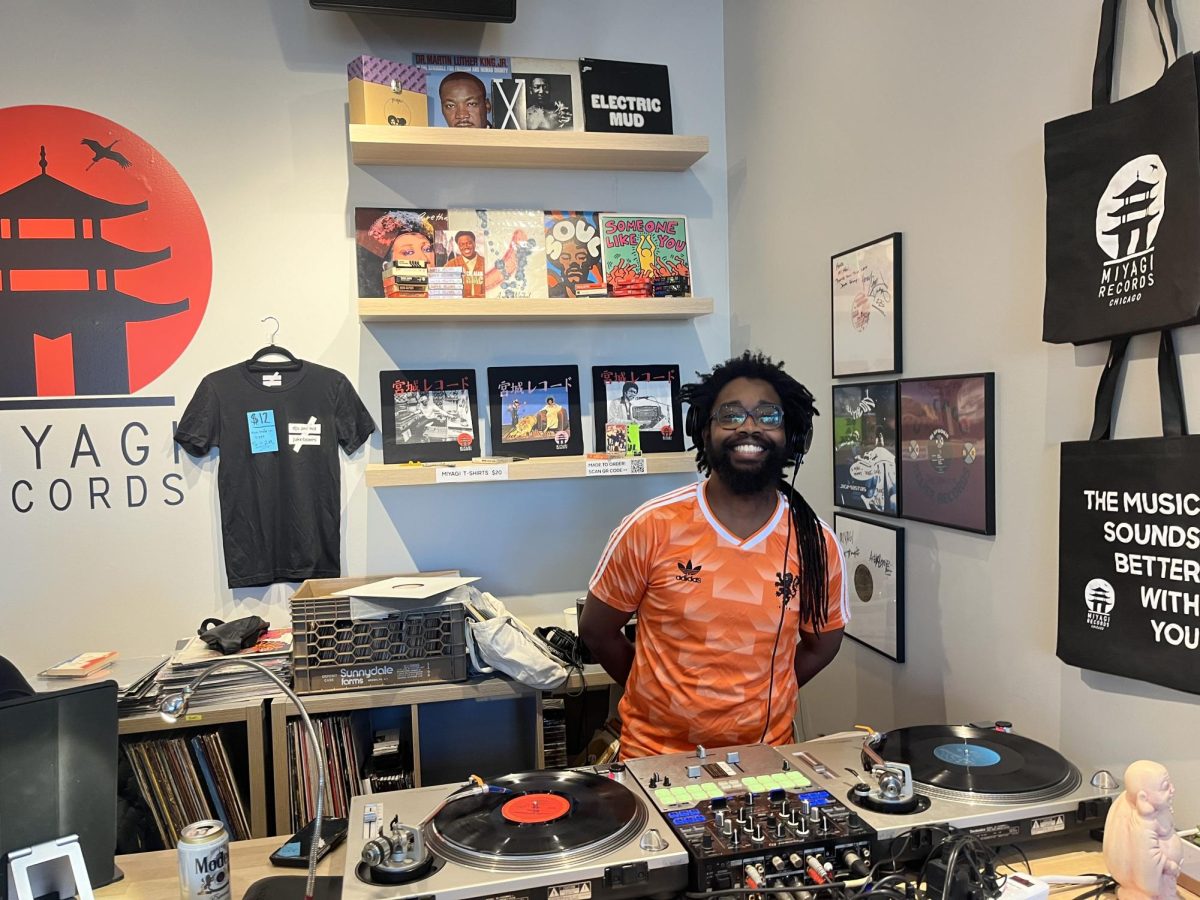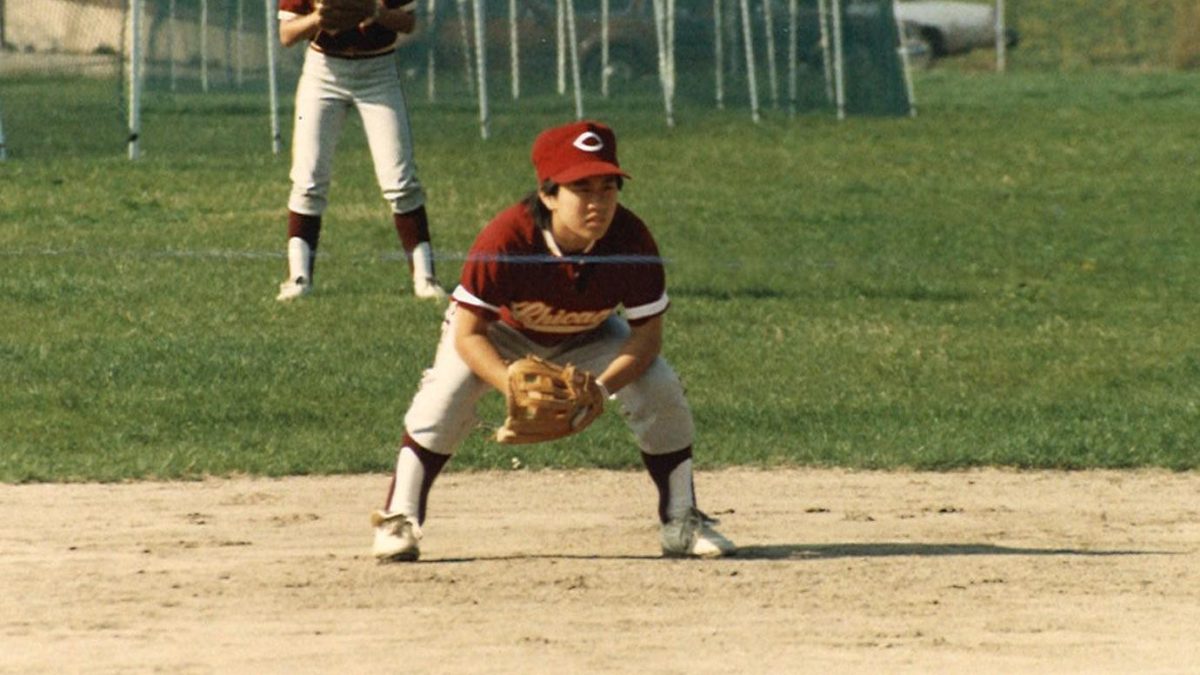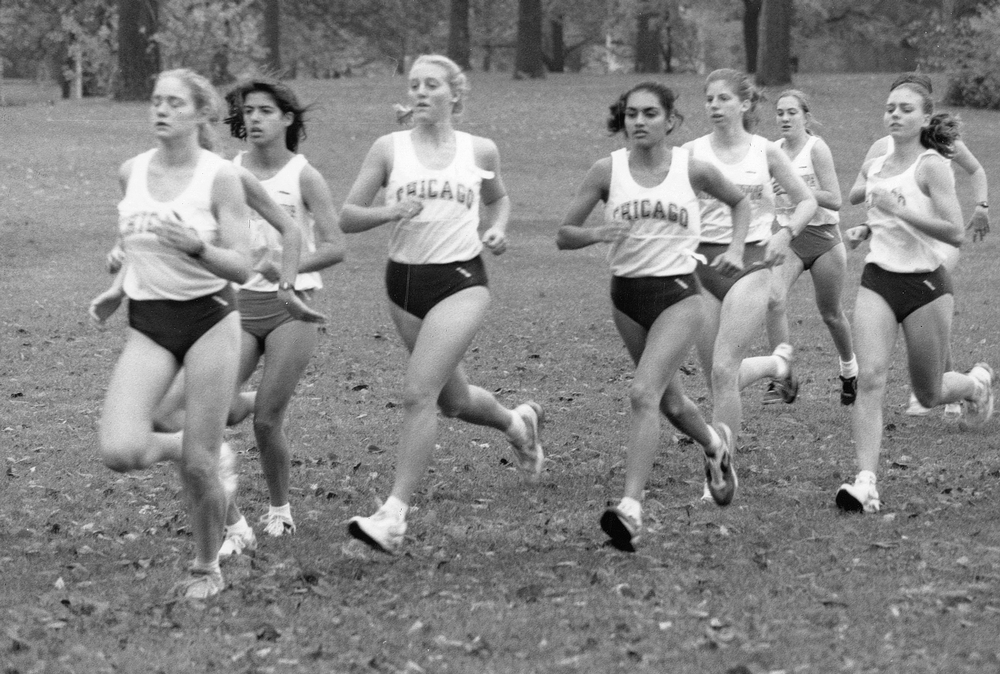One University Athletic Association (UAA) championship. Four straight winning seasons. An NCAA tournament appearance. Numerous accolades and awards. Countless achievements both on and off the field. For four years, senior captains Barret Van Sicklen and Kevin Donovan grew and developed into outstanding leaders for the University’s men’s soccer team. During this time, the two players–Van Sicklen a speedy forward and Donovan a hard-working midfielder–rewrote the record books and brought a new standard of success to the Midway.
“Barret and Kevin are best buddies off of the field, but they’re on opposite sides of the spectrum as far as players,” head coach John O’Connor said. “Barret is pretty boisterous–he’s a dynamic kind of player. Kevin is more of a blue collar player.”
Like their contrasting personalities, both players also began their careers as Maroons in different ways.
“Kevin played a lot more first year than Barret, and Barret wasn’t all that fit during his first year,” O’Connor said. “Barret then made an active decision to do more since he was a bit disappointed with his first year, and he improved a lot.”
Barret’s improvement, a commitment to fitness and a strong determination to emerge as a consistent scoring threat, paid off in spades by his third year. In 2001, the diminutive forward scored 16 goals and earned a second-place spot on Chicago’s all-time list for scoring in a season.
Not surprisingly, Barret’s peers view his development a bit differently than his coach does.
“First year, Barret used to be a little weasel- that was his nickname, ‘little weasel,'” fourth-year defender Ross Kessler said. “After first year, he became more of our main goal scorer, and he accepted his role as the go-to-guy for the offense.”
Kessler added, however, “during every off-season, Barret would develop this huge beer gut. By the end of the season, he’d be fine–he’d work it off. Me and him were always the worst on that Cooper test [a timed 2-mile run] though.”
While Van Sicklen blossomed in his later years as a Maroon, Donovan made his mark with his consistency. After his first year, he earned Freshman of the Year honors, and he continued to improve after that.
“Kevin pretty much stayed the course during his years as a Maroon,” O’Connor said. “Kevin kept on working away, and he established himself as a starter sophomore year and just kept on growing.”
Kessler, once again, had a slightly different opinion. “Kevin and I, yeah, we share a sports gambling addiction, so I guess he’s developed his gambling addiction over the past four years,” Kessler said. “Seriously though, besides the gambling addiction, Kevin’s become smarter in terms of tactics and how to play the game.”
But he agreed with O’Connor that Donovan was no slacker. “Kevin was definitely the workhorse on the team,” Kessler said.
Along with their approaches to the game on the field, Van Sicklen and Donovan also deviate in their off-the-field personalities. Van Sicklen emerged as the candid, vocal captain of the soccer squad this year, whereas Donovan became more of a leader through his play and conduct.
“Barret’s a boisterous player. He’s a very blunt kid, so, as a coach, I can be blunt with him,” O’Connor said. “Kevin, on the other hand, leads more by example. He’s very good at adjusting, and he just does what needs to be done.”
Kessler provided further illumination on O’Connor’s comments.
“Barret is the jokester and the prankster,” he said. “He used to toilet paper people’s dorm rooms during preseason. Oh, he used to do hand stands in the shower too. Kevin didn’t really do stuff like that.”
Despite their somewhat drastic differences off the pitch, at least according to Kessler’s accounts, both Donovan and Van Sicklen undoubtedly excelled in their roles on the field. Donovan, an industrious midfielder, often began the Maroons’ attack and served as a link between the offense and defense. Accordingly, Donovan often carried the brunt of the responsibility in dictating the flow of play during games. Van Sicklen’s job remained quite different but just as essential: to score goals. Lots of them.
Van Sicklen certainly played his role well. Along with his record 16 goals in 2001, Van Sicklen followed up with a superb senior effort, scoring 10 goals and notching four assists, despite playing with an injury. For his efforts, Van Sicklen once again stood as Chicago’s leading scorer and earned a place on the NCAA Division III All-Central Region team. Van Sicklen also earned a place on the All-UAA first team.
Although Donovan did not earn numerous accolades, his contributions to the team were far from unnoticed. In fact, some attribute Donovan’s lack of awards as a testament to his skill on the field.
“Kevin is key to our team because he is a real gentleman of the game,” O’Connor said. “He’s never carded for dissent. If it’s a tackle, then it’s a tackle, but he plays with class, and that impact is really felt throughout the team.”
Kessler had similar praise for Donovan. “He plays to his strengths real well, and he’s the play-maker on our team, but he’s more subtle than Barret,” he said. “Kevin didn’t get much recognition, but he was the player that was the most essential to the team–except for me on the bench.”
Now, after four years of dedication and achievement, Van Sicklen and Donovan leave a considerable legacy behind. Of course, both players stand as great teachers of the game.
“Barret was good for the younger forwards; he teaches them to take chances when you get them, and to seize every opportunity,” O’Connor said. “Kevin just keeps on plugging away and inspires the whole team.”
Kessler concurred: “Next year, [the team is] going to have some big shoes to fill. Barret was one of the fastest people on the team, once he got rid of that beer gut he always picked up during the off-season.”
Overall, O’Connor also praised his entire senior class, stating that, while Van Sicklen and Donovan stood as two of the leaders on the team, all of the seniors deserve praise for their success.
“The senior class is the first class to have four winning seasons, and they set a definite standard,” O’Connor said. “They accept nothing less than the best–and they signify the mark of a really good program.”







